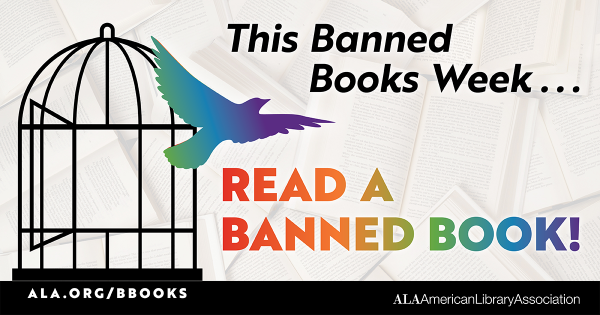Hello, K-12 School Library Community!
My name is Suzi Tonini, and I am the new School Library Leadership Consultant for the Colorado State Library. I am thrilled to work in partnership with all of you to engage and empower Colorado students through school library programming and resources. In case you’d like to learn more about me, here is a link to my LinkedIn profile. Or, better yet, please email me at tonini_s@cde.state.co.us and schedule a time to meet with me! I am eager to get to know you and how I can best serve you in this role.
My wonderful predecessor Becky Russell and CSL colleague Tammy Langeberg created the K-12 Library Connection newsletter to sustain a sense of community and share information relevant to school library staff. Tammy and I will continue to publish a newsletter on a monthly basis, so please visit regularly and use the comments of the School Library Hotline listserv to continue the conversation.
 For this issue, we are focusing on challenges to library materials and programs. September 18-24 is Banned Books Week, which has historically been a time to celebrate the freedom to read and the perseverance of titles some people or groups wanted to remove from library shelves. This year feels markedly different. Coordinated efforts to censor library materials are spreading at an alarming rate. According to the American Library Association, 1,597 books were affected by censorship attempts in 2021. This year, Banned Books Week is a call to action.
For this issue, we are focusing on challenges to library materials and programs. September 18-24 is Banned Books Week, which has historically been a time to celebrate the freedom to read and the perseverance of titles some people or groups wanted to remove from library shelves. This year feels markedly different. Coordinated efforts to censor library materials are spreading at an alarming rate. According to the American Library Association, 1,597 books were affected by censorship attempts in 2021. This year, Banned Books Week is a call to action.
Action Steps to Protect Your Students’ Right to Read
- Review your selection and reconsideration policies. Know the policies to follow if your school receives an informal or formal complaint about a book. If you are not familiar with these policies, contact your library director or review your district board policies. If your school or district doesn’t have policies in place, the ALA’s Office of Intellectual Freedom OIF offers free consulting services, which includes creating and editing policies.
- Schedule a time to meet with your school leader. Share the library selection and reconsideration process for your school or district. Your school leader may be the first person to receive a book complaint– proactively discussing how to handle a book complaint will ensure they have all the information needed to respond appropriately.
- Request time at the next all-staff meeting. Educate your colleagues about protecting students’ right to read and the policies your school or district has in place in the event of book challenges. ALA provides free downloadable graphics like Censorship by the Numbers you can use to raise awareness to book challenges.
- Join Unite Against Book Bans. According to Christopher Finan, executive director of the National Coalition Against Censorship (NCAC), joining Unite Against Book Bans “is the single most important thing for everybody to do this year.” And encourage your colleagues to join too!
- Reach out for support. If you receive a book complaint, the ALA’s Office of Intellectual Freedom. The OIF provides confidential support to anyone undergoing a material or service challenge.
Free and On-Demand Professional Learning About Censorship
Intellectual Freedom and Materials Challenges – What You Need to Know
New Jersey State Library presents strategies for how to prepare for book challenges and respond to informal and formal book complaints. The webinar was created for public library trustees, but it provides lots of valuable guidance relevant for school library staff.
Beyond Banned Books: Defending Intellectual Freedom Throughout Your Library with Kristin Pekoll
Kristin Pekoll, Assistant Director at the ALA Office for Intellectual Freedom, discusses intellectual freedom and how it relates to different aspects of librarianship, such as programming, collection development, social media, displays, digital information, policies, and procedures.

Compelling Reads
We encourage you to read “Banned Books Week 2022: A Time for Education, Advocacy and Action” by Kara Yorio, published in the September issue of School Library Journal. Yorio interviews several key figures of organizations fighting censorship and provides guidance and resources to protect students’ intellectual freedom.
“Empowered by Reading: The Benefits of Giving Youth Access to a Wide Variety of Reading Materials” is the new report from Unite Against Book Bans. The report provides clear research demonstrating that individuals and communities benefit when young readers have access to a wide variety of materials.
Idea Sharing
How are you preparing for a book challenge at your school? How are you teaching students their First Amendment rights? Other thoughts or questions? Share your ideas via our School Library Hotline listserv.
- The K-12 Library Connection: Media Literacy - November 1, 2022
- The K-12 Library Connection: Building Inclusive Collections - October 11, 2022
- The K-12 Library Connection: Protecting Students’ Right to Read - September 20, 2022